2016 Newcomer stories
Newcomer story: Ashraf Kharazi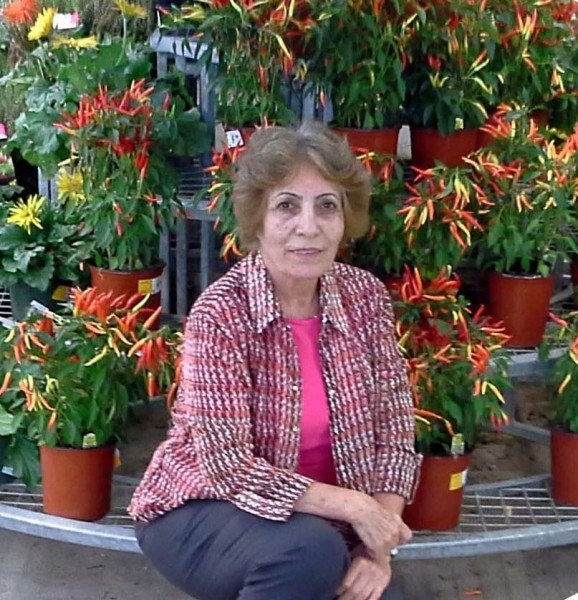
The first time I met Ashraf in person was when she visited the English Online office to meet with Blaine, one of our e-facilitators. She is a petite lady, but she had a strong positive presence. She was all smiles and said “thank you!” to each of us as she was introduced. The visit was a rare treat for us, because we usually meet our learners online.
Weeks later, I was fortunate to meet Ashraf again, this time on Skype. I had asked to interview her for a learner story and she agreed. Ashraf had just come home after working as a lunch assistant at a nearby school and was probably tired, but she was smiling on screen exactly at 2:00 p.m. We exchanged the usual pleasantries and I was impressed by how well she could converse. She pauses sometimes to recall certain words, but her sentences are clear and correctly constructed. The gracious lady thanked me for contacting her, even if it was I who requested the meeting.
During their first few days in Manitoba, the couple quickly learned that in order to do tasks like shopping, seeing a doctor, and availing basic services, they needed to know English. Despite having their kids to assist them, Ashraf and her husband did not want to depend on them. This was why the couple decided to enroll in English classes right away.
Proud grandma
Ashraf and her husband came to Manitoba just eight months ago (they came in June 2015) from Iran. The couple’s two children have been living in Manitoba for several years now – the daughter came here 14 years ago and the son had been here for four years. Ashraf and her husband came to Manitoba because they wanted their family to be reunited, especially now that they had three grandchildren. “I want to be close to my grandchildren (an eight-year-old boy and twin girls aged 10). I can now go and visit them during weekends and it makes me happy,” Ashraf said.
During their first few days in Manitoba, the couple quickly learned that in order to do tasks like shopping, seeing a doctor, and availing basic services, they needed to know English. Despite having their kids to assist them, Ashraf and her husband did not want to depend on them. This was why the couple decided to enroll in English classes right away. However, when Ashraf accepted the lunch assistant job, she found that she could not join her husband in a daily, face to face English class.
Learning online
Prior to coming to Manitoba, Ashraf had already taken some English classes. However, the retired teacher felt that she needed to improve her English more, and so she tried English Online. The flexible schedule and the topics appealed to her. “I attend coffee chats where I learn with a group of people from other countries like India, Pakistan; it is good. Everyone is so friendly and helpful,” Ashraf said.
To further accelerate her learning, she was matched with an EAL e-tutor.“My e-tutor, Carol, is from Vancouver. She is a very good and a very nice teacher. We meet once a week and she gives me homework,” she said. For Ashraf, the best thing about learning with English Online is “learning useful things without going outside. I can learn when I don’t have time to go to class,” she added. But more than this, learning with English Online has given her independence. “Now I can go shopping by myself, she says. I don’t have to bother my children. I still need my daughter to come with me when I go to the doctor, but for shopping, I can do it myself,” Ashraf said.
“Don’t worry, everything here is good!”
In the course of our conversation, Ashraf mentioned that she had a minor accident last week. “I slipped and fell on the ice at school. But it’s okay, a lot of people, especially the kids helped me. The doctor told me nothing was broken but I had to rest, so I did not go to school for two days. But I am okay now,” Ashraf said. When I expressed concern, she flashed her smile again, as if to say, that “it is nothing”.
Her positivity and can-do spirit are quite admirable. Ashraf is the kind of person who does not let circumstances get her down. So when she shared her plans on going back to teaching in the near future, I had no doubt in my mind that she will succeed.
When asked for advice for her fellow newcomers, Ashraf said: “Don’t worry, everything here is very good. A lot of people will help you when you come here. Don’t stop learning. Go and learn English,” she said.
Newcomer story: Joy Frett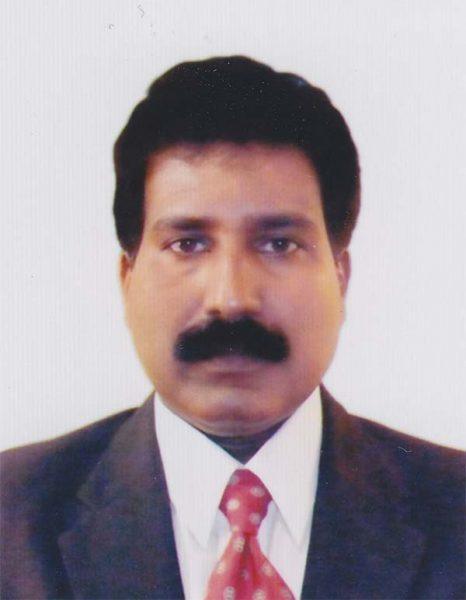
“Be in the present, there is nothing more important. You should not worry about the past or be anxious about the future. We only have limited time, so don’t waste it on worrying. The best time is the present.“
This is what Joy said when asked for a message for other newcomers like him. Sage words from a wise man. And quite eloquent from someone who, just about two years ago, did not speak any English at all.
Joy Frett and his wife, Rosily Kochuvareed, were newcomers to Toronto when Rosily was offered an opportunity to work as a social worker by the Manitoba Health Sector. A year after moving to Ontario from India, they moved once again and landed in Manitoba on March 29, 2014. The couple settled in Dauphin, a scenic city that is part of Manitoba’s Parkland Region.
An accomplished engineer and manager
Prior to moving, Joy was a field engineer and business owner who travelled extensively. Later on, he accepted a position as a Technical Manager for the Al-Massel Group, a general trading and contracting company in Kuwait. Before leaving for Canada, he had been working with the company for 17 years. Despite this success, Joy and his wife immigrated to Canada in search of a better life.
At first, the couple was worried about the harsh winters they were told they would face in Dauphin. They were also uncertain about finding decent and affordable accommodations because they did not know anybody from the city. And, with the predominantly Ukrainian community there, they thought that they would have problems fitting in.
“I like the enthusiasm, involvement and team spirit of e-facilitators. They are always open to listen and encourage the participants to communicate their own ideas and views in various important topics. I feel all participants are comfortable to talk and learn in the group. Irrespective of language capabilities, e-facilitators ensure that everyone gets their turn. Also, the topics discussed in the group have great importance in our daily life. These virtual classes really motivate newcomers to work on their language”
It turns out that their worries were unfounded. With advice from their friends, Joy and his wife were able to find a good place to live in. They found that the community was quite welcoming and open to other cultures, so they had no problems integrating. As for the weather, Joy could only smile when he thought about his fears. “In the past two years that we’ve been here, we have been experiencing the mildest winters. The weather here is even better than in Toronto,” he said.
This left Joy with his final concern – learning English. He knew Arabic and Malayalam (a mix of Tamil and Telugu languages) and did not speak English at all. It was a good thing that Joy learned about English Online (EO) from the Friendship Centre in Dauphin.
An active learner
Wasting no time, he registered with EO. He became active in Coffee Chats, Drop-in Workshops and attended Multi-Week sessions. Later on, he joined the LINC Home Study program to further hone his language skills. He has been, and continues to be, one of EO’s most active learners, making the most out of the sessions and connecting with the e-facilitators and e-tutors.
“I like the enthusiasm, involvement and team spirit of e-facilitators. They are always open to listen and encourage the participants to communicate their own ideas and views in various important topics. I feel all participants are comfortable to talk and learn in the group. Irrespective of language capabilities, e-facilitators ensure that everyone gets their turn. Also, the topics discussed in the group have great importance in our daily life. These virtual classes really motivate newcomers to work on their language,” Joy said.
“I appreciate all the efforts of Yulia, Blaine, Arra, Iwona, Margarita, and my e-tutor Louise. I am thankful especially to Blaine, who I regard as more than an e-facilitator; I consider him my friend. He is a dedicated teacher. He is always ready to assist me whenever I need help, sometimes even when he is off or during weekends,” he added.
Staying positive and being mindful of the present
Aside from his English classes, Joy is currently busy volunteering and making connections in his community. Just a few months ago, he volunteered for the former MP for Dauphin (between 1980-1984) Laverne Lewycky. He had the opportunity to go along with him during courtesy visits. Through this exposure, Joy learned many things about the process of community-building. From Mr. Lewycky himself, Joy was thankful that he learned many phrases and proverbs in English. Aside from these, it allowed him to interact and mingle with the community, which, Joy says, is essential to settling in a new place. He believes that to really learn the culture of a country, you have to observe and immerse yourself.
He further advises newcomers to stay connected with local settlement providers and community organizations, learn to network, and understand multiculturalism. Most importantly, he emphasizes the importance of lifelong learning. “Be ready for continuous education and skill development. Maximize your time for learning but don’t forget to allot time for enjoyment,” Joy said.
The change of pace for Joy to a much calmer lifestyle seems to agree with him. He is positive that he will soon prosper career-wise, but in the meantime, he is enjoying volunteering, learning English and the Canadian culture, and taking care of his wife. “We like living in Manitoba. The people are friendly, the landscape is beautiful, there is no congestion and it is very easy to move around. My wife and I are happy here,” Joy said.
Newcomer story: Nikita Kovyazin
He appeared on Skype exactly at 1 p.m. Winnipeg time for the interview. Meanwhile, it was nearly 9 p.m. in Russia where Nikita lives. Despite the lateness, he was ever gracious and ready to share his experiences.
Not officially a newcomer yet, Nikita and his family are just waiting for their visas to arrive. In fact, he has not quit his job and is still working full time in Moscow. This is why he can prepare for their impending move only during his spare time. Finding Live & Learn was serendipitous for Nikita as it has provided a way for him to learn in his own time while still in his home country. Through the website’s resources and online community, he is able to learn about Manitoba, practice his English, and connect with other new Manitobans.
Waiting for their visas
Originally from Ukraine, Nikita moved to Moscow in 1995. There he worked for various companies for 20 years, building a successful career in sales. Currently, he is a sales manager for the multinational tobacco company, Philip Morris. Despite his career success, Nikita and his wife decided to immigrate to Canada because they want to give their children, aged 10 and six, a better future. “I feel that my kids will have more opportunities for growth in Canada,” Nikita said.
Prior to applying for immigration, Nikita did not know much about Manitoba. He did extensive research on the province, learning about its economy, cost of living, immigration streams, and employment prospects. He also learned about Manitoba’s vibrant multicultural communities, among them strong Russian and Ukrainian groups. He fondly recalls learning about Folklorama, having been acquainted with some of the event’s organizers and volunteers from the Association of Russian-speaking Manitobans. He met them at the ambassadors’ nomination dinner in Winnipeg one week prior to the festival in 2015. He looks forward to attending the cultural event with his family next year. In the meantime, Nikita continues to prepare and plan for their eventual move by August-September of this year, just in time for the school opening.
The best thing about learning with English Online is that it gives me the opportunity to communicate with a variety of people from different countries. We don’t only learn from an e-facilitator, we learn from all the participants. It is great to share views, hear about different experiences, varied accents, and different levels of English! This experience prepares us for living in Winnipeg as it is the most diverse city in the world
“It’s like going around the world”
An independent search on the internet actually led Nikita to Live & Learn. He was amazed to find free online services specifically targeted for new Manitobans. Since then he has been one of English Online’s most active learners, participating in many settlement and language activities. He also reads settlement articles which he feels provide useful information for living and working in Manitoba. Nikita’s favorite activity is the Coffee Chats where he participates in online discussions about various settlement topics.
“The best thing about learning with English Online is that it gives me the opportunity to communicate with a variety of people from different countries. Some of them still in their home countries and some already in Winnipeg. We don’t only learn from an e-facilitator, we learn from all the participants. It is great to share views, hear about different experiences, varied accents, and different levels of English! This experience prepares us for living in Winnipeg as it is the most diverse city in the world,” Nikita said.
“Another good thing is that we don’t even need to come out of our homes. It’s like going around the world without leaving your seat,” Nikita added. He looks forward to integrating into the Canadian community immediately after their arrival since he believes that it is crucial to avoid sticking to only one cultural group.
No looking back
Despite the excitement of their impending move, Nikita stays grounded. As early as now, he is setting realistic expectations about life in Canada. Just like all other immigrants, he is concerned about employment prospects, setting up their financial future, and of course, the adjustment of his wife, especially their children. But over and above these concerns, he continues to be optimistic.
Nikita imparts this advice to new immigrants like him: “To all newcomers, I advise them to be brave, and be open to new experience, new environment. Don’t look back! As soon as you decide to move to Canada, embrace your new life. Along the way, there will be a lot of troubles and doubts, but don’t let these get you down. Remember your ultimate goal, why you came to Canada. That will help you stay on target. There’s no looking back,” Nikita said.
Newcomer story: Mervi Nishantha Gunatilaka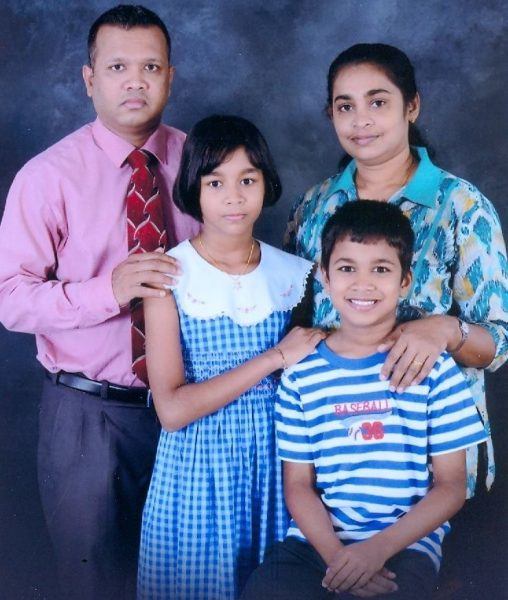
Like most newcomers, Mervi Nishantha Gunatilaka and his wife decided to immigrate to Manitoba because they wanted what was best for their children. “We wanted to move mainly to find better education for our children. University education in my home country is very competitive. There are a limited number of places available. I decided to go to a country that will expose them to a better educational environment with better living conditions,” Mervi said.
His concern for his kids’ future pushed him to see their plans through even if it meant leaving his burgeoning career behind. Mervi had just been promoted to Chief Engineer at the Ceylon Electricity Board. This was a culmination of 10 years of hard work. He started as area electrical engineer and worked his way up to project engineer, then finally the chief post. But love for his family won out and with the support of a friend, he applied to the Manitoba Provincial Nominee Program and hoped for the best.
“Settling in a new country is a challenging task. We have to undergo many transitions. Mental anguish happens when we do not get culturally expected results. But if we study, understand, and be better prepared for them, we can face challenges easily.”
Licensing and other concerns
While still in Sri Lanka, Mervi wanted to prepare for their new life as early as he could. Once he received his provincial nomination (which allowed him to apply for a permanent resident visa), he started searching for resources to help him. He came to learn about the Canadian Immigrant Integration Program (CIIP) on the internet and participated in an online orientation. “During the CIIP, I learned about the different institutions in Manitoba. I wrote to Red River College asking for more online orientation. Red River College recommended English Online (EO) and suggested that I follow EO activities. That is how I learned about EO,” Mervi recalls.
Mervi says that he has availed of almost all of EO’s services. “English Online connected me with an e-tutor to improve my English. My English tutor was a Canadian-born, retired gentleman. We did 10 one hour online sessions for 10 weeks. That was very helpful.”
Aside from an e-tutor, Mervi also availed of the services of an e-mentor. “Another great help for me was my e-mentor. He helped me learn about the engineering field in Manitoba. I learned that electrical engineering is a regulated occupation and that I would need a license. This helped me prepare even before I came to Manitoba,” Mervi said.
He also participated in other activities like the virtual coffee chats which he says helped him learn about Canadian life, culture, and settlement. Moreover, it connected him with other services he needed. “During one virtual coffee chat, I came to know about the Immigrant Centre. I registered with them and they provided me with valuable online pre-arrival sessions for many weeks,” Mervi said. To this date, Mervi continues to be an English Online learner, attending workshops, courses, and coffee chats in his free time.
Preparation and perseverance
Mervi and his family landed in Winnipeg on March 10, 2016 and have started to build their new life in the city. The greatest challenge facing him right now is finding work as a professional in his field. Rebuilding a 17-year career is not an easy task, and despite being highly skilled and experienced, he would need to achieve a P.Eng (professional engineer) qualification which will allow him to work as an engineer. But with Mervi’s preparation, perseverance, and openness to learning, he is well on his way toward meeting his goals.
“Settling in a new country is a challenging task. We have to undergo many transitions. Mental anguish happens when we do not get culturally expected results. But if we study, understand, and be better prepared for them, we can face challenges easily,” Mervi said.
Newcomer Story: Zainab (Jeny) Ghulam Rasool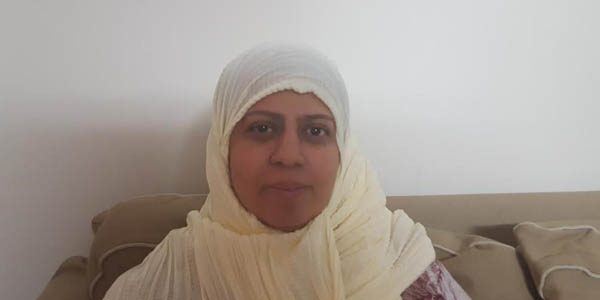
“Leaving behind our loved ones was not an easy task. But with the understanding of the seniors in our family, we made the decision to move to Canada,” Zainab said. The Rasool family chose to move to Canada from Pakistan for safety and security. They saw that it is a country where residents benefit from services and are given many opportunities for growth. Most importantly, as parents of three children, Zainab and her husband were looking for a place where they can provide the best education and quality of life for their kids. With the urging of their close friends who have settled in Winnipeg, they made plans to immigrate. In April 2012, Zainab and her six-year-old daughter arrived in Winnipeg.
Today, with her entire family now settled in Manitoba, Zainab is happy to see her kids thriving. Her two older children are currently enrolled at the University of Manitoba, and her youngest child, who is in grade five, is studying at a French immersion school.
“I decided to learn with EO because I am a homemaker and because I was already facing the challenges of weather, culture, and lifestyle. Being online was convenient, easily accessible and flexible. Honestly speaking, at that time, I did not have good computer skills but the EO staff helped me understand the whole system.”
Understanding Manitobans
Zainab recalls that in her first few days in Winnipeg, she had to adjust to the weather, language, and culture. However, she said that “the greatest challenge for me was understanding the accent of Manitobans and how to communicate.”
To help remedy this, she started looking for English as a Second Language (ESL) classes. Zainab took a CLB test at WELARC and learned about her options. She chose to register with English Online (EO) mainly for convenience. “I decided to learn with EO because I am a homemaker and because I was already facing the challenges of weather, culture, and lifestyle. Studying online was convenient, easily accessible and flexible. Honestly speaking, at that time, I did not have good computer skills but the EO staff helped me understand the whole system,” Zainab said.
Building confidence
At first, Zainab concentrated on improving her English language skills. Eventually, she took courses on improving computer skills, resume and cover letter preparation, and job interview preparation.
“There are so many reasons to like the EO program,” Zainab gushes. “Its system is simple, the facilitators are friendly, and you can interact with people from different origins, nationalities. Through EO, you can sit at home and get valuable knowledge. EO has helped increase my confidence. Now I can communicate in English confidently, without hesitation. EO has also helped me improve my email writing skills and my way of sharing new ideas and information.”
“It will not be justified if I do not praise respected e-facilitators Blaine Roberts, Iwona, Stephanie Stetefeld, and Yulia because of their patience, positive attitude, and friendly way of teaching. Erum Imran and Blaine are working hard to make all of us autonomous learners. I am also in close contact with e-volunteer coordinator, Tatiana who is always there ready to help everyone,” Zainab said.
To date, Zainab has become one of EO’s most loyal learners. She has been with EO for almost four years now and continues to sign up for learning activities. Six months ago, her involvement with the organization reached a new level when she signed up as a settlement e-volunteer. Volunteering with EO affords her the opportunity to share her experience with newcomers and practice what she does best – help others. Zainab was a counsellor for women in her community back when she was in Pakistan.
“Based on my experience, having proper information is the best tool to solve a problem. I advise newcomers to know more about Manitoba – the lifestyle, weather, culture, system, and others. They should not hesitate nor feel shy about asking for information. EO is one of the best sources of settlement information and guidance. I advise newcomers to register with EO and avail of the free service”, Zainab said.
A dream come true
With her communication skills continuing to flourish, Zainab took a big step towards realizing a dream. In January 2015, she enrolled in a Certificate Program in Applied Counselling at the University of Manitoba.
Zainab, who has a Master’s Degree in Psychology, had always wanted to pursue further studies. This was not possible in her home country as advanced studies were not easily accessible to everyone. Last year, while attending a seminar at Manitoba Start, she met a representative from the University of Manitoba who advised her to enroll in the program. Today, she is well on her way to becoming a certified counsellor. “I am hopeful that I will get my certification in 2017. Then I will be a ‘certified counsellor’. That day will mark a great achievement in my life,” Zainab said.
In the meantime, she continues to study and volunteer with EO as she completes her program at the U of M. But as early as now, she has set her sights on ways to give back to the community the best way she can. Zainab is planning to volunteer as a counsellor in various agencies after she acquires her certification. “My future plan is to serve the Manitoban community as a certified counsellor. They are my people,” Zainab said.
Newcomer Story: Maksim Antipev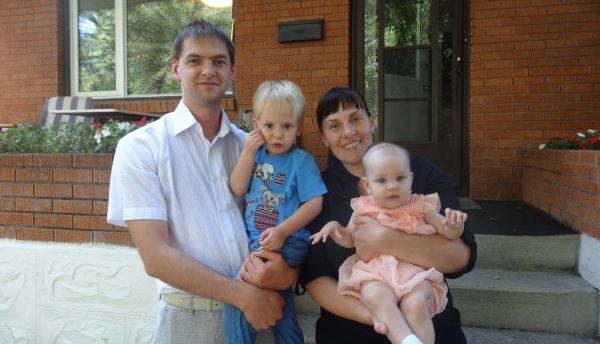
New year, new life
Maksim and his family arrived in Winnipeg on December 31, 2015. Together with his wife Anna Antipeva (who was then seven-months pregnant) and their son Ilia, they ushered in the New Year at the Country Inn & Suites by Carlson. “We asked for some food to celebrate the New Year, and I remember that we had pizza!” Maksim remembers. Their arrival to the city was a culmination of a five-year process which began in Vladivostok, Russia.
Long journey to Manitoba
Maksim began their immigration journey in late 2011 when they decided that moving to Canada would assure better opportunities for his future kids. Immigration consultants from Dalvisa Vladivostok, Russia helped him with the application process and other documents. To prepare for his application, Maksim and Anna began to learn English with their Russian teacher Natalia Viktorovna, and in 2012 went to the Philippines (Adamson University, Manila) to continue studying English. After two months, Maksim took the IELTS test there. He then applied to the Manitoba Provincial Nominee Program (MPNP) and the following year (2013), came to Winnipeg on an exploratory visit.
Maksim remembers that his 10-day stay in Winnipeg was stressful because he didn’t know anybody in the city. But in spite of this, he was happy when the MPNP officer gave him an invitation to apply after the interview. It took an additional two years before Maksim and his family could move to Winnipeg. In the first year, the letter of approval somehow got lost and was not delivered to Russia. Maksim had to email MPNP to ask about his status. Still, it was his son and his wife’s new pregnancy which sustained his resolve to move to Canada. With the arrival of their Canadian visas, Maksim could only exclaim, “thank you to the Manitoba Government, for giving my family a chance for a good future!”
Maksim remembers that when they arrived in Winnipeg, it was the kindness of strangers that saw them through their first days. “The landlord of the apartment (Dave) accepted us despite not having references nor a job. We were able to move to our new home after staying five days at the hotel,” Maksim said. Soon after moving to the apartment, they became acquainted with a neighbor, who, together with her church friends, gave them household items, such as cups, plates, and cutlery. This signaled an auspicious beginning for the young family.
Early challenges
“In my first few days, nobody could tell me the equivalent of my profession and education here in Winnipeg,” Maksim laments. It was only when he started his sessions with his English Online e-tutor, Augusta Avram that he was able to create a profile and structured online Canadian resume on LinkedIn. “She helped me understand what kind of education I have in Canadian terms, since she had a similar educational system in her country,” Maksim said. During the session with Augusta, Maksim discovered that he had the qualification and skills that can be used not only for Financial or Business Analyst positions, but also for a specialist in the real estate industry. He also learned about Canadian collocations, the meaning of networking, using online tools like LinkedIn and Twitter, and educational resources (Tutoring online) from his e-tutor.
Maksim was actually paired with Augusta for English language training but learned so much more. Previously, he was taking classes at MITT, but because the school was far from his house, Maksim felt that it was not an efficient use of his time. When someone suggested taking online classes with English Online, he tried it and saw that it fit his needs. Aside from saving time (and parking fees), he appreciated the one-on-one instruction. “I liked that I get to talk directly to my teacher. She helped me improve my English faster,” Maksim said.
Another career hurdle for Maksim was learning how to market himself. When he started applying for jobs, it was hard for him to highlight his achievements because it felt like boasting. A highly principled person, Maksim learned that it is important to show your abilities and achievements, but it is equally as important to keep your integrity and honesty.
Canadian Tire, Sears and Safe Way
During his first few days in Winnipeg, Maksim remembers that he did not know where to buy basic necessities. This was mainly because, he says, the names of establishments are not self-evident. “I was confused about Canadian Tire, Sears, and Safe Way. Also, I have been passing by Safe Way and Dollarama near my house but I never knew that they sold food and useful items”, he said. “If you are not familiar with these Canadian brands, you should learn about them before you arrive.”
This is why he underlines the importance of planning and preparation for immigrants. “Take pre-arrival courses, CIIP for example, if possible, six months to one year before leaving for Canada”, Maksim said. He further advises pre-arrivals to create a personal settlement plan. “Researching and writing what you need to do when you arrive, where to settle, and which government agencies to go to before you arrive will help keep you on track. Whatever you write down in your plan, you accomplish. Plus, you have to create your budget, set your financial goals, and monitor what you spend every two weeks,“ he said.
Among the first things Maksim advises newcomers when they arrive is to get a car and a licence. He says that it can be difficult to obtain a license because of the strict rules and the fact that they are different from other countries’ rules. However, “driving a car helps you to be mobile and flexible, which is why it can be an advantage when you are applying for a job,” he said. Also, finding a church, according to him, helps in maintaining a positive outlook. “Back in Russia, I did not go to church regularly. But in Winnipeg, I find that it keeps me anchored in my faith and it reduces stress,” he said.
“One more thing is the government’s great opportunities for our children like child care (with chance to have child subsidy), free school education, Air Cadets, church camps, savings plans for high education, and others. They also extend a lot of support to newcomers while they are establishing themselves, like free English training, employment training, rent assist, career development aid from the Manitoba government, the Winnipeg Harvest food bank, and others. I encourage newcomers to apply for them. I especially appreciate the free health services – my daughter was born at St. Boniface hospital – one of the best hospitals in Canada. I have a lot of respect for the government.”
Appreciating Manitoba
Nowadays, Maksim’s positivity is starting to bear fruit. The day before I spoke to him, he was hired as a Portfolio Administrator at S.A.M. Management. He relates that during the interview, the employer gave greater focus on learning about his character and principles. Something that was perfect for Maksim, who early on felt awkward about marketing himself to employers. He expressed that he is anxious to learn the ropes of his new job, his enthusiasm showing through. Things are looking up for the hardworking young dad.
When asked if he would recommend immigrating to Manitoba to his friends, Maksim was thoughtful about his answer. “It can be hard to find a job in Manitoba because you have to get used to things like making a specific resume format, networking, self-marketing, and online application (which can be slow). But if you feel that you are up to the challenge, then this province is for you. I would say that among the best things about Manitoba is its wonderful environment: the clean streets, animals (squirrels, rabbits), parks in five minutes, open pools, playgrounds for children, good highways, and beautiful lakes. I also like that it has high quality goods and very delicious and soft meat (pork, beef, and chicken). One more thing is the government’s great opportunities for our children like child care (with chance to have child subsidy), free school education, Air Cadets, church camps, savings plans for high education, and others. They also extend a lot of support to newcomers while they are establishing themselves, like free English training, employment training, rent assist, career development aid from the Manitoba government, the Winnipeg Harvest food bank, and others. I encourage newcomers to apply for them. I especially appreciate the free health services – my daughter was born at St. Boniface hospital – one of the best hospitals in Canada. I have a lot of respect for the government,” Maksim said.
********
Maksim would like to take this opportunity to thank the wonderful people who helped him and his family settle in their new home. According to Maksim, “find new friends, choose right way for the future.”
- Silvija Ulmanis (UK/Gulf Office Canadian Immigrant Integration Programme)
- Sasha Chernakov and Anna Shusterman (first acquaintances)
- Shai and Elena Goren, Olga, Andrey (Manitobans who helped with his car and driving)
- Darya and Mikhail Koval, Sasha and Ira Loginov (Russian friends who brought us to Slavic Church)
- Carla and Chris Kleinsasser, John and Margaret (neighbors, Spring’s church)
- Anna Murray (Neighbourhood Immigrant Settlement Worker Elmwood Community Resource Centre)
- Victor and Natalia Mogourian, Sasha and Hadya Nezvesciuc (Slavic Church)
- Corinne Bergenon, Reg, Shanshan (Spring’s church)
- Jennifer Stadtmiller (WELARC)
- Yulia Savchuk (Entry Program)
- Tatiana Nedelko and Erum Imran (English Online)
- Augusta Avram (English Online e-Tutor)
- Lianne Tetlock, and Nelia Martins (Manitoba Government)
- Rany Jeyaratnam, Ha Nguyen, Saima Arshad, Cicely Valel (Success Skills Centre)
- Liz and Kirk Burcar (New Flyer)
- Edward Rodzen (Lindex Properties)
- Sergiy Prymachok (Bison Transport)
- Eleonora Margolin (Happiness Is… Inc. Child Care Centre)
- Susan Fehr and Kevin Tousignant (S.A.M. Management Inc.)
Newcomer story: Sana Naveed Ahmed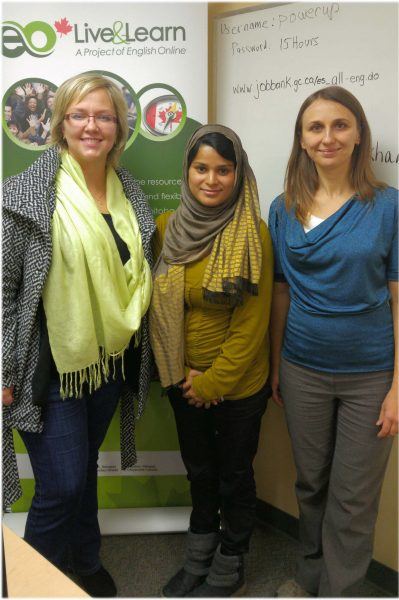
It was an excruciating experience for Sana. In her halting English, she recounts her appointment with an obstetrician in Toronto. The first time mom remembers that when the meeting started, she found that she couldn’t quite express herself fully in English. Her husband had to step in and speak for her. Sana realized that English was so different in Canada! The accent and the speed at which people spoke confused her. It was frustrating for her to just listen and nod when she knew it was an experience for her to tell. But because of this incident, she vowed that she will do her best to hone her English skills.
Toronto, Winnipeg and Portage la Prairie
Sana‘s husband owned a gas station in Toronto. They got married in Karachi, Pakistan in 2011 then she applied to immigrate to Canada the following year. In 2013, while waiting for application results, she applied for a visit visa and was granted one. She remembers arriving in Toronto at the height of winter in January. “I was so excited to see snow and experience my first winter, but I didn’t expect it to be so cold!” Sana said.
Shortly after, she became pregnant with their first child. Sana recalls that it was not an easy time for her. Aside from being dependent on her husband since she couldn’t speak English very well, she was on visitor visa and was not eligible for health care coverage. She said that her husband had to spend so much for her check-ups and her delivery (via Caesarian Section). After giving birth, the couple decided that it would be best if they lived with their close relatives in Manitoba. They sold the gas station, packed their bags and moved to Winnipeg in 2015.
While in Winnipeg, Sana wanted to get back on track with her English lessons so she took classes at MITT. She also attended free English as a Second Language (EAL) sessions in church. When her husband got a job in Portage la Prairie, they moved again. It is a great blessing for them that the Portage la Prairie Learning and Literacy Centre (PLLC) is just five minutes away from their new home. She finally became a Permanent Resident in February 2016 opening up more options for free newcomer services.
Despite having moved so often, Sana does not regret coming to Manitoba. “I see that it’s more multicultural here. I don’t hesitate wearing my Salwar Kameez, our traditional dress, because I see many women wearing it. There are also more mosques where we can gather together. I’m more comfortable here,” Sana said.
Learning English as a priority
Talking to Sana, you could hear how determined she is to learn English. For her, learning the language means being self-sufficient and productive. It is also the key for her to practice her profession in Manitoba. “I have submitted all the requirements to be registered and licensed in Physiotherapy. They have accepted my credentials (she has an MA in Physiotherapy). I need to take the IELTS and achieve an overall band score of 7 or better. Then I can write for an exam leading to licensure,” Sana said.
To prepare for IELTS, Sana continues to study twice a week at PLLC. To supplement her English classes, her instructors at PLLC told her about English Online (EO). “I have taken online workshops, virtual coffee chats and the Summer Course. Learning with EO is very convenient! No need for child care, no need to travel, and the lessons are useful. I don’t only learn English, I learn about Manitoba and Canada as well. I joke with my relatives back home that I now know more about Canada than my home country,” Sana said. She continues to study intensively for her IELTS test which she will take in December of this year.
Tips for newcomers
“Definitely learn English before coming to Canada! That should be a priority,” Sana said. She regrets not knowing about newcomer supports like English Online before coming here. Aside from learning English, Sana underlines the importance of having a good support system. “I am lucky that my husband helps me. He is my support. He takes care of our young children (she gave birth to their second child in June) when I want to concentrate on studying” she said.
Aside from these, she also shares the following tips with her fellow newcomers:
- Learn how to drive and get a licence. You will need your own car, especially if you have young children.
- Know about free settlement supports and English language lessons before you come to Canada. This will help you immensely in your preparations for settlement.
- And finally, never give-up! Don’t lose hope. Be patient and always persevere with learning.
